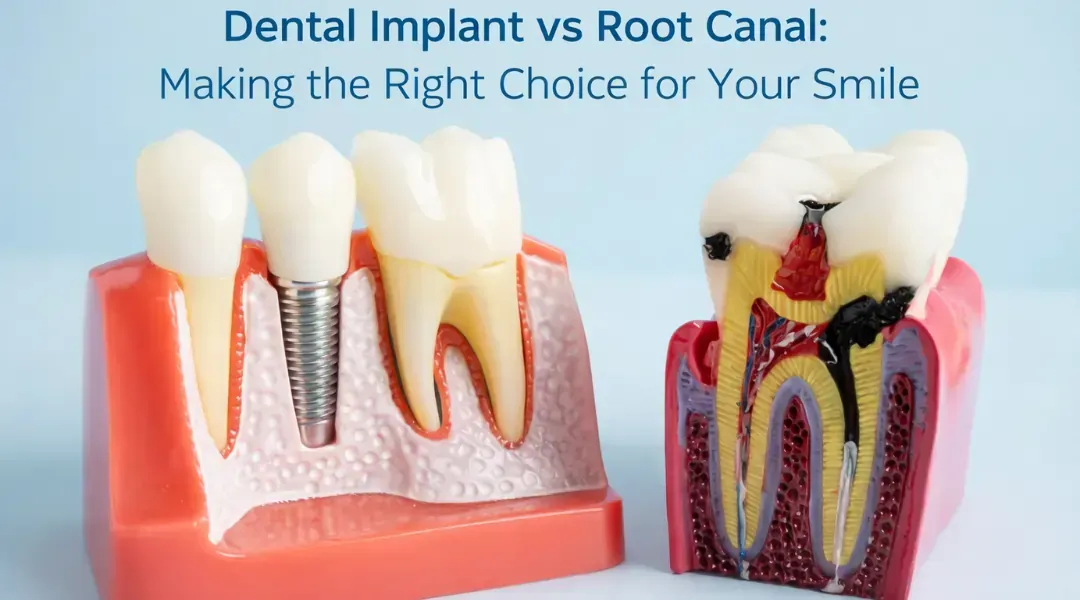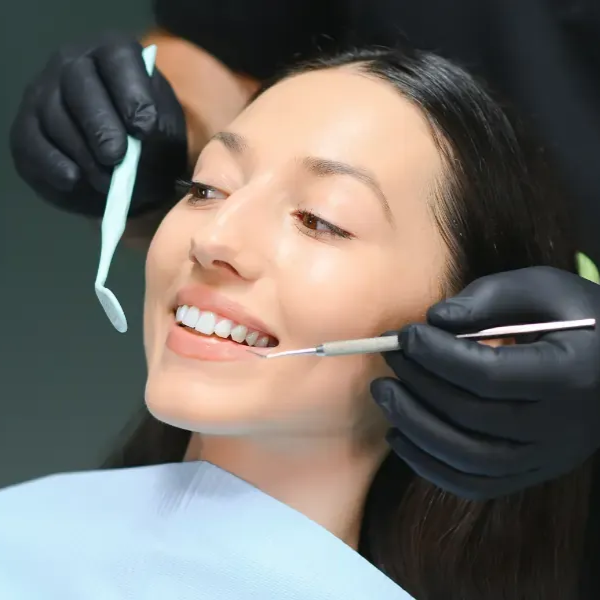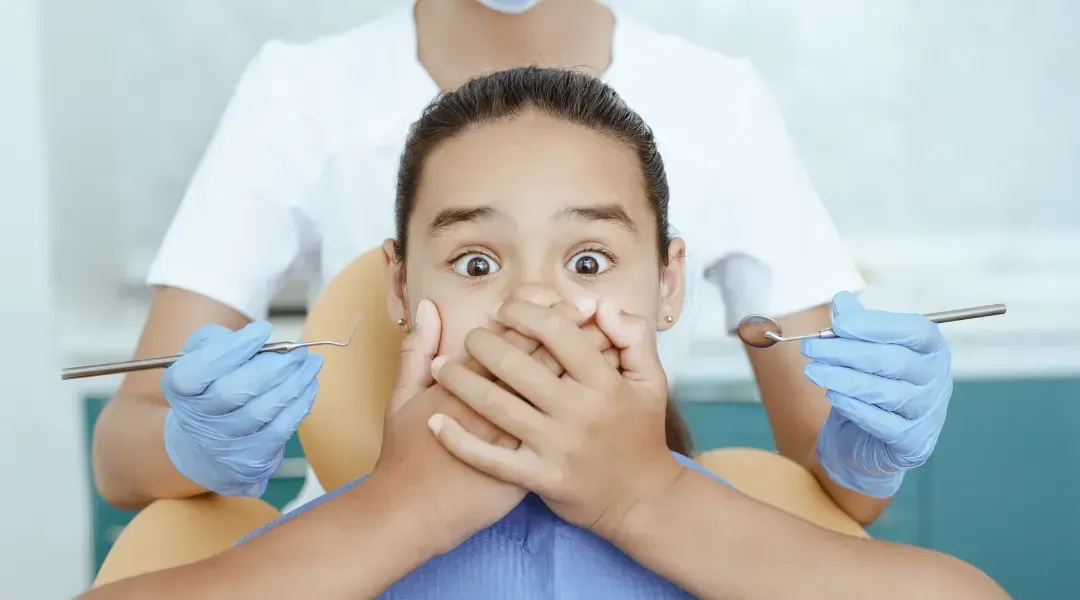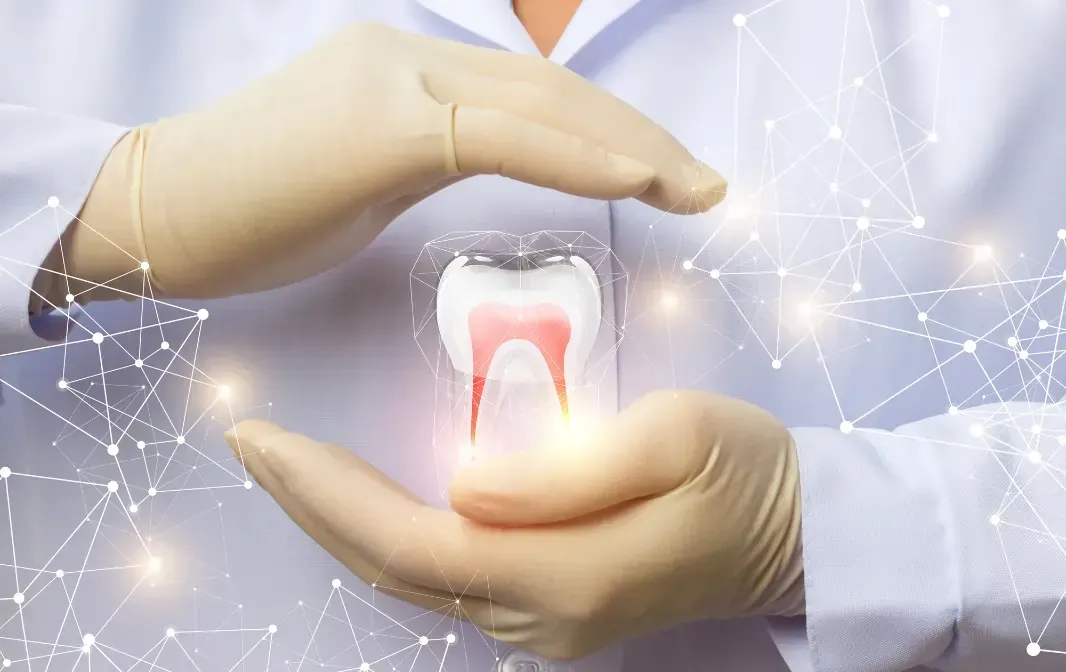June 5, 2025
A smile is often the first thing people notice—and remember—about us. But what if you're hesitant to share yours? You’re not alone. Many people feel self-conscious about their teeth, and it silently affects how they show up in the world. At Kings Park Dental Center , we believe that restoring your smile is more than cosmetic—it’s transformative. In this article, we take a closer look at how your dental health directly impacts your confidence , self-image, and quality of life—with insights from psychology, science, and real patient experiences that prove a better smile can truly mean a better you. The Psychology Behind your Smile Your smile isn't just an expression—it's a reflection of your inner world. According to psychological research, smiling activates neural messaging that boosts mood-regulating neurotransmitters like dopamine and serotonin. But there's more. When you're unhappy with your teeth, you tend to smile less—or hide your smile altogether . This behavioral pattern, known as smile suppression , often leads to: Decreased self-confidence Social withdrawal Reduced participation in work or group settings Heightened anxiety about appearance A study published in the Journal of Clinical and Diagnostic Research found that over 80% of individuals who had cosmetic dental procedures reported increased self-esteem and social confidence within months of their treatment. In short: when you’re proud of your smile, you naturally want to share it—and that changes how you interact with the world. Real Transformations: A New Smile, A New Life Every smile we treat at Kings Park Dental Center has a story behind it. These are more than cosmetic cases; they are personal journeys toward greater confidence. Take one patient, a professional woman in her 30s who spent years hiding her teeth in photos and meetings. After receiving Invisalign and whitening treatments, she said, "I never realized how much I was holding back. Now, I walk into rooms with a different kind of energy." Another patient, a local teacher, shared that after addressing dental gaps and staining, “It felt like I had finally caught up to the version of myself I was meant to be. It changed how my students saw me—and how I saw myself.” These stories aren’t rare. They're everyday transformations, and they begin with one decision: to prioritize your smile. The Smile-Confidence Connection: What the Research Shows Let’s look at the science. First impressions matter : Studies show it takes less than 7 seconds to form a first impression—and a confident smile plays a major role.( londonspeechworkshop ) Smiling boosts perceived competence : A 2019 study in Psychological Science revealed that people who smile are often judged as more capable, trustworthy, and intelligent.( psychologicalscience ) Oral aesthetics impact mental health : Dental appearance influences not just social interactions, but also how people perceive their own mental wellness.( NIH ) The takeaway? Your smile is a key contributor to how you are perceived—and how you perceive yourself. Your Smile Makeover Options Whether you’re looking to correct minor imperfections or seeking a full transformation, Kings Park Dental Center offers a personalized approach to cosmetic and restorative dentistry. Each treatment is designed not just for aesthetics—but to enhance your health, function, and confidence. Here’s a closer look at the most effective smile-enhancing treatments available today: 1. Professional Teeth Whitening Purpose: Brighten discolored, yellowed, or stained teeth caused by coffee, tea, wine, tobacco, or aging. How It Works: Our in-office teeth whitening treatments use high-concentration peroxide gels and safe UV activation to dramatically whiten teeth in as little as one session. For those who prefer at-home care, we also provide custom trays with professional-strength whitening gels. What to Expect: Noticeable results after one visit Minimal sensitivity with professional-grade products Maintenance options to preserve your white smile Ideal For: Patients with healthy teeth and gums who want a fast, affordable confidence boost. 2. Sure Smile Clear Braces Purpose: Straighten crooked, crowded, or gapped teeth discreetly—without metal brackets or wires. How It Works: Invisalign uses a series of clear, removable trays that gradually shift teeth into alignment. Each set is worn for 1–2 weeks, with progress monitored regularly. What to Expect: Nearly invisible, comfortable fit Custom-designed using 3D digital scans Most cases completed within 6 to 18 months Ideal For: Teens and adults seeking an alternative to traditional braces—especially professionals who want subtle treatment. 3. Porcelain Veneers Purpose: Instantly correct multiple cosmetic concerns—such as chipped teeth, discoloration, uneven spacing, or worn enamel—with a flawless, natural-looking finish. How It Works: Veneers are ultra-thin porcelain shells bonded to the front of your teeth. Each one is custom-designed to match your ideal color, shape, and size for a perfect, symmetrical look. What to Expect: Typically completed in 2–3 visits Long-lasting with proper care (10–15+ years) Stain-resistant and incredibly lifelike Ideal For: Patients looking for a dramatic, celebrity-style smile transformation without extensive dental work. Pro Tip: Veneers are often called a “smile shortcut” because they offer a comprehensive fix for multiple flaws with minimal invasiveness. 4. Dental Implants Purpose: Permanently replace missing teeth for a natural look and feel—restoring both aesthetics and functionality. How It Works: Implants consist of a titanium post (which acts like a tooth root) surgically placed into the jawbone. A crown is then attached, mimicking the look and function of a real tooth. What to Expect: A durable, permanent solution Prevents bone loss and facial collapse Restores chewing ability and facial structure Ideal For: Patients missing one or more teeth or those looking to replace dentures with a stable, permanent solution. 5. Cosmetic Bonding and Tooth Contouring Purpose: Quickly and affordably fix small chips, cracks, minor gaps, or uneven tooth edges. How It Works: Bonding uses a tooth-colored composite resin that is shaped, polished, and cured in one appointment. Contouring involves gently reshaping enamel for a smoother, more uniform appearance. What to Expect: Quick (often completed in under an hour) Painless and non-invasive Immediate results with no downtime Ideal For: Anyone looking for a budget-friendly smile enhancement or who wants to test cosmetic changes before committing to veneers. Each treatment is paired with expert consultation and care, ensuring your comfort and confidence from the first appointment to your final reveal. More Than Looks: The Health-Confidence Cycle Here’s something people often overlook: a beautiful smile is usually a healthy one . When people invest in cosmetic dentistry, they tend to develop better daily habits—brushing, flossing, regular cleanings—which reinforce oral health and long-term wellness. And the result? A powerful cycle: Improved smile → Boosted confidence → Increased motivation for self-care → Stronger health outcomes → Even more confidence. That’s not just a makeover. That’s a life upgrade. Start Your Smile Transformation Today If you’ve been hesitating to smile—whether in photos, at meetings, or even with friends and family—it’s time to take the first step. You deserve to feel confident, and we’re here to help you achieve that with care, compassion, and expertise. The Kings Park Dental Center team is ready to walk with you on your journey to a healthier, more radiant smile. 📞 Contact Us Today: 703-323-3910 🌐 Visit Our Website: https://www.burkefamilydentistry.com/ Let your smile reflect who you really are—confident, empowered, and ready to take on the world. The Kings Park Dental Center Team









